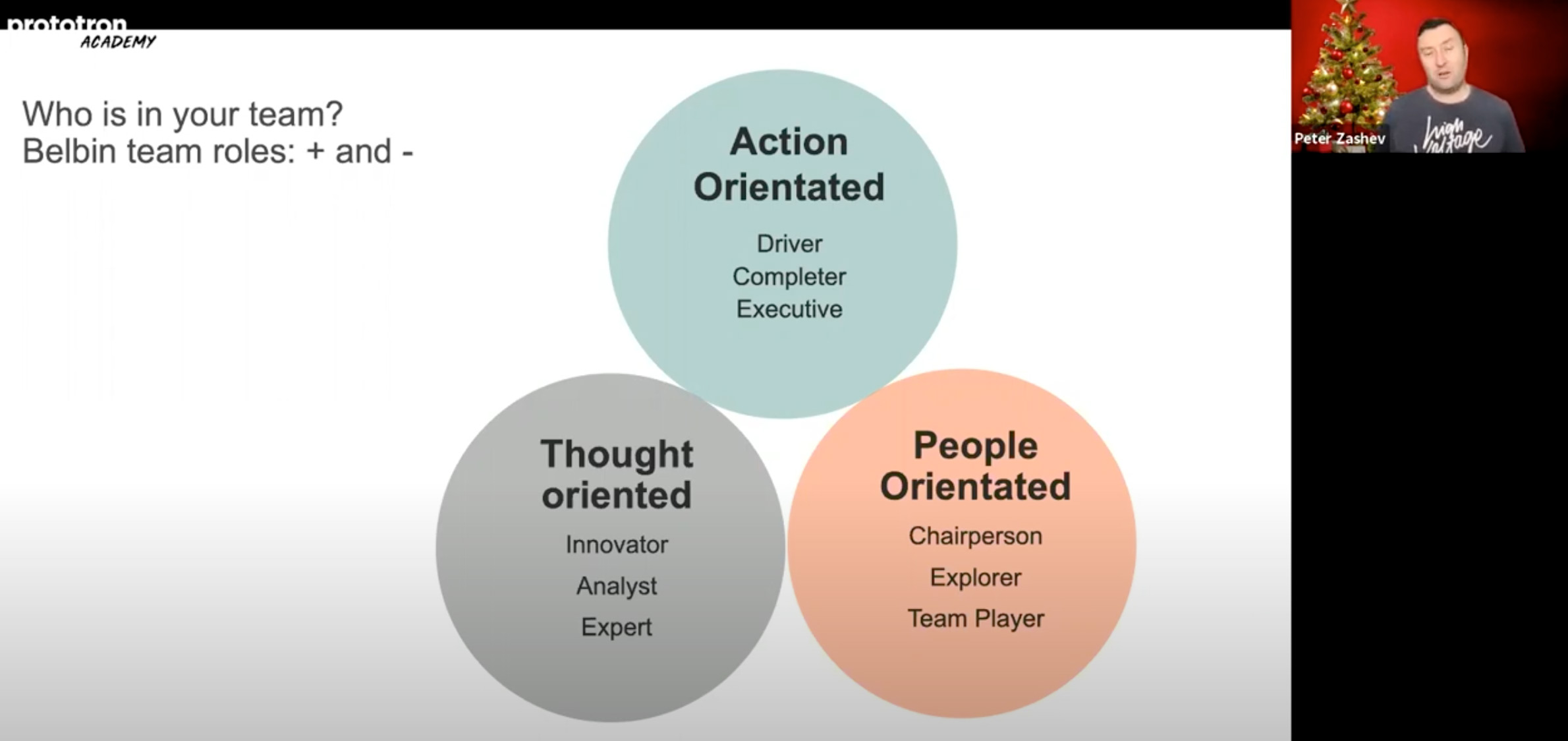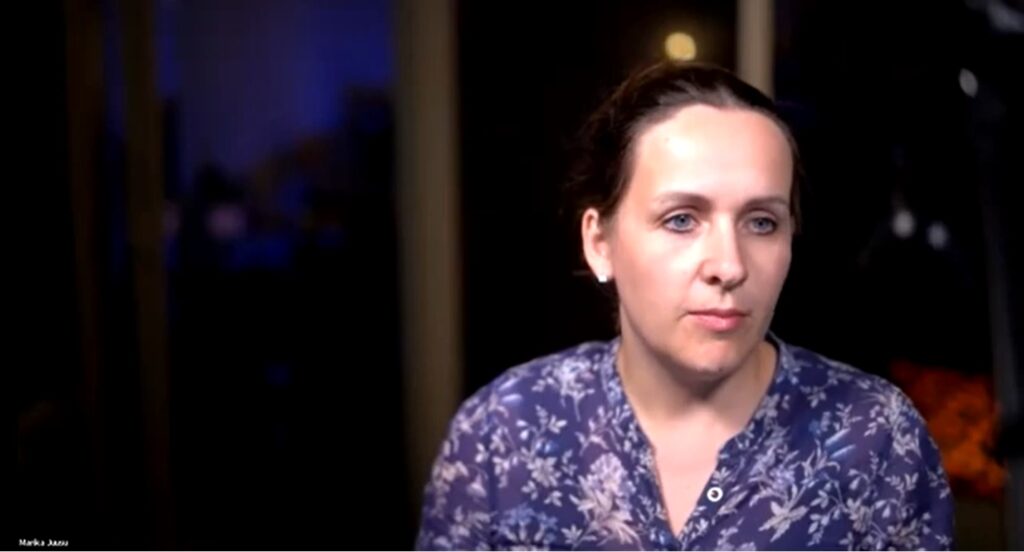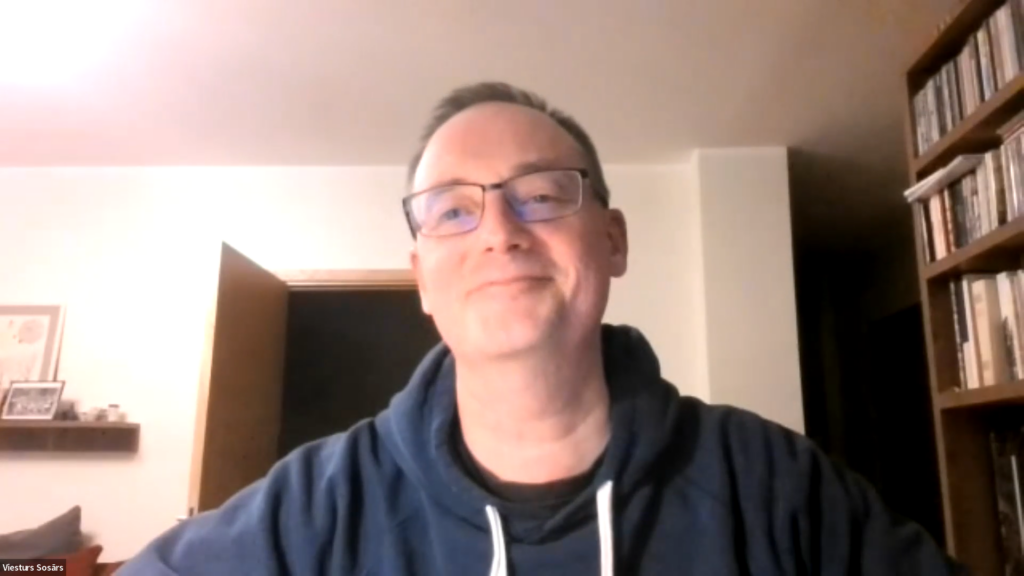Category: Teamwork
Introductory course “How to get things done?”

At the Prototron webinar, Paul Vaher talked about how to actually get things done and gave us a five-step guide to increasing personal effectiveness. A small summary is in front of you, but it is definitely worth watching the webinar itself.
“Our minds are not designed to hold ideas, but to generate them.” Such a line of thought has been written by Dave Allen, author of the book Getting Things Done.
A five-step journey to become a master of doing things.
Step One – Make it clear who has your attention.
Write down on a piece of paper all the things that are currently moving in your head. Don’t evaluate them or try to explain them, just make a simple list of keywords. Try to notice how you feel now that all these things are memorized on paper.
NB! Instead of keeping things in your head, save them to some external media: a sheet of paper, a booklet, a calendar notebook, a Word document.
Step Two – Find out what needs your attention.
Take the first keyword from the list and find out what it is.
NB! Try to control when you do something instead of facing another matter of urgency.
Step Three – Organize things that require attention.
Divide things that require action into categories:
- Projects – lasts a long time and contains many small tasks;
- Calendar – The activity is related to a time variable;
- Next action – A specific action you can take. For example. Call Priit and make an appointment to inspect the car.
- Waiting – The activity cannot be performed at this time because it is behind someone else’s activity. Non-actionable impulses;
- Trash – keep as a reference – put it in your “Bucket list”
NB! Clear categories help you to have an overview of the tasks ahead. Confusion hides important topics that need your attention.
Step Four – Reflect.
NB! Keep your finger on it so that your categories are still categories and don’t turn into similar piles of confusion over time.
Step Five – Take action!
Now you have an overview of the important tasks to do.
NB! Start doing things.
With these simple five steps, you can earn privilege to sing in the shower:“I belive I can fly“
Be sure to check out Paul Vaher’s webinar and a tip to save time: put video on the acceleration. It is perfectly understandable, what Paul is saying.
Mistakes worth of million euros

Keep in mind that these mistakes are not one-offs but systematic miscalculations and are therefore often overlooked.
Let us introduce: millions of euros worth of research over the years that Vladimir accidentally and reluctantly paid for.
Here is a TOP list of his mistakes.
1. I did not understand or renew my role in the company.
Starting a business, we are the holy trinity of business. This means that we embody the CEO, the founding member, and the investor at the same time. Each role has its own function.
– The founder is an icon whose image is standing on the wall.
– The shareholder is capitalist, looking for good investment opportunities and thinking in a long term;
– The CEO manages the company. Quoting Vladimir: “CEO gets shit done!”
2. I wasn’t looking for mentors.
Mentors provide important knowledge. There is no need to be afraid that if you ask for instructions, you are in trouble. Mentors usually enjoy mentoring.
3. I did not make difference between reactive and proactive behavior.
If your day is spent answering random emails and phone calls and dealing with unexpected tasks, then you are reactive. When you work like this, you´ll burn out soon because you never feel like something has been done. Be proactive.
4. I neglected the company’s finances.
Profitability creates convenience. At a time when money is tight, every move is thought through. You should look at each outgoing pile of money and think about whether it could be sent to a better place. So it would invite more friends back home.
5. I did not interview every job candidate.
If you take that time, you will be able to build a trusting and personal relationship with the new team member. Your vision and ideology will become clear to the new employee before the first day of work. The candidate provides good information on how the company looks to the outside viewer.
6. I didn’t take care of myself.
A CEO is an example whose job it is to make good decisions. Poor health, domestic worries, stress, and financial problems do not contribute to the decision-making process. The team reflects the leader. If you live in distress, your employees and your entire company will soon live there.
7. I didn’t work on SUPER exciting projects.
Yes, we have to make rational decisions about which projects to undertake, but from time to time we also have to come up with a task that will keep you awake at night and thrill your creativity.
So. We will not send you a bill. Use the knowledge you gained and write one million euros in the assets of the training budget. Of course, what is written here is just the tip of the iceberg, and Vladimir’s fruity descriptions of experience are definitely worth checking out from the webinar.
There are two Cs in a great team

What if I don’t want to build a team? What if I want to do it all by myself? Then you are faced with mountains of tasks, where climbing destroys your health, and soon you probably open a fast-food kiosk. I recommend watching this webinar because the example of my fast food kiosk is dangerously out of context.
It is worth being picky when putting together a team because the wrong person can be a heavy burden for a start-up. There are two Cs in a great team: Competence and Character.
It is important to divide tasks according to people’s strengths. When choosing team members, choose those who complement you and pay attention to what roles are over or missing in the team.
As a leader, you have an important role in explaining the mission, vision, inspiring and motivating the team. In time group members begin to discover each other’s peculiarities and conflicts may arise. Here, as a leader, you have to intervene again, help the egos retreat, recall the mission, and inspire and motivate again.
Building a team is crucial to a successful project. So be sure to check out Peter’s webinar.
Peter Zashev Working in international team

Here You are super tips from Peter Zashev.









































facebook
instagram
twitter
linkedin